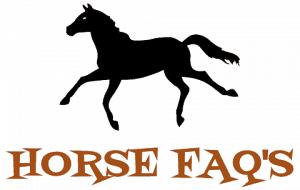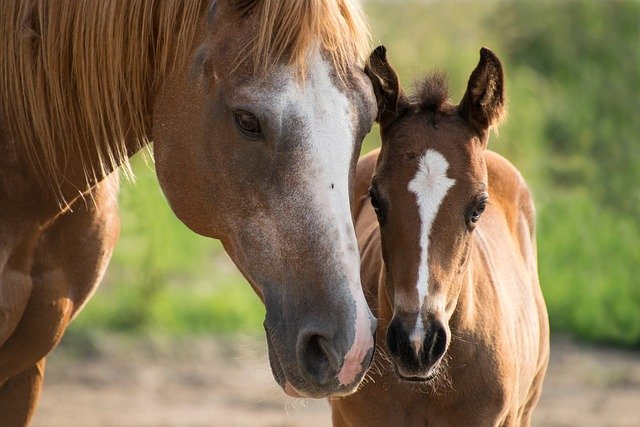Horse lifespan is an important aspect of equine care that requires a thorough understanding of the different stages of a horse’s life, dental health, and proper nutrition and exercise. Horses are majestic creatures that have been domesticated for thousands of years and have served humanity in various ways, including transportation, agriculture, and sports. As such, it is essential to understand the various aspects of their lifespan to provide proper care and ensure their well-being.
This article aims to provide a comprehensive guide to horse lifespan, including the different life stages of horses, the importance of dental and veterinary care, and tips for senior horse care. We will delve into the different stages of a horse’s life, from foals to seniors, and discuss how their nutritional needs, exercise requirements, and health concerns change over time.
Additionally, we will explore the importance of dental care in horses and how to maintain healthy teeth and gums to ensure their overall well-being. Finally, we will discuss common health concerns that can affect horses at any stage of their life and provide practical tips for managing these issues.
By the end of this article, readers will have a better understanding of how to care for horses and help them live long, healthy lives.
Life Stages
Horse life stages consist of youth/adolescence, adulthood, and seniors. Breeding practices play a significant role in determining when the horse reaches each stage of its life. Colts are typically gelded between 6-12 months of age, which prevents unwanted breeding and helps to ensure good behavior.
During the youth stage, horses undergo significant physical development, including growing taller and increasing in weight. They also require extra energy, protein, vitamins, and minerals to build strong bones and healthy muscles.
By the time horses reach adulthood, they are fully grown, which typically occurs around 5 years old. During this stage, horses are at their physical peak and can perform at their highest level. However, genetics, environment, and disease can impact their overall health and longevity.
As horses age and enter the senior stage, they exhibit signs of aging such as a swaybacked appearance, loss of muscle, gray hairs, and stained/worn/missing teeth. It is important to note that equating a horse’s age to human years is not linear, and horses may live well into their thirties or beyond with proper care.
Nutrition and Care
Maintaining a balanced and tailored diet for a horse is crucial for their overall health and longevity, akin to how a well-oiled machine requires proper maintenance and fuel to function optimally. Young horses require extra energy, protein, vitamins, and minerals for strong bones and healthy muscles, while senior horses need a diet formulated to meet their specific needs.
Here are three key considerations for horse nutrition and care:
- Senior feed: Senior horses have different dietary requirements than their younger counterparts. They may require a diet that is easier to chew and digest, with added nutrients to help maintain their health and vitality. Senior feeds are formulated to meet these needs, with ingredients such as beet pulp, alfalfa, and flaxseed.
- Supplements: Supplements can be helpful in addressing specific signs of aging or improving overall wellness. For example, joint supplements can help with mobility and reduce joint pain, while probiotics can improve gut health. It’s important to work with a veterinarian or equine nutritionist to determine the best supplements for your horse, as some may interact with other medications or have unwanted side effects.
- Weight management: Maintaining a healthy body weight is important for a horse’s longevity. Obesity can lead to a variety of health issues, including laminitis and joint problems. On the other hand, underweight horses may have weakened immune systems and reduced energy levels. It’s important to monitor your horse’s weight and adjust their diet as needed to maintain a healthy body condition.
Common Health Concerns
One major health concern for equines is gastrointestinal disease, which is a leading cause of death among horses. Colic, a type of gastrointestinal disease, is common and can be caused by various factors such as changes in diet, dehydration, and intestinal blockages. Prevention strategies include maintaining a consistent feeding schedule, providing plenty of clean water, and avoiding sudden changes in diet. Regular exercise and turnout can also help prevent colic. Recognizing the signs of colic, such as decreased appetite, restlessness, and pawing at the ground, can prompt prompt veterinary care and increase the chances of a positive outcome.
Another common health concern for horses, particularly older horses, is Cushing’s disease. This condition affects the hormone balance in horses and can lead to symptoms such as weight loss, muscle wasting, and a shaggy coat. Management strategies include medication to regulate hormone levels, as well as dietary changes to support overall health. Horses with Cushing’s disease may benefit from a low-sugar diet, as well as supplements to support immune function and joint health. Regular veterinary care is also important for monitoring the progression of the disease and adjusting management strategies as needed.
Frequently Asked Questions
What are some common behavioral changes that may occur in senior horses?
Senior horses may exhibit changes in behavior such as decreased activity, increased irritability, and reluctance to move. These may be due to mobility issues such as arthritis. Dietary changes may also play a role in behavior.
How can climate and weather conditions affect a horse’s lifespan?
Climate impact and seasonal changes can affect a horse’s lifespan by increasing the risk of respiratory and skin diseases, as well as causing dehydration and heat stress in hot weather. Proper management, including shelter, hydration, and regular veterinary care, is important for mitigating these risks.
Are there any alternative or holistic treatments that can help address common health concerns in horses?
Despite claims of effectiveness, natural remedies and acupuncture have limited scientific evidence for treating common health concerns in horses. More research is needed to determine their true benefits and potential risks.
What are some common misconceptions about horse care and lifespan?
Horse care misconceptions and lifespan myths exist, including the belief that horses can live 40+ years or that they don’t require dental care. Proper nutrition, veterinary care, and exercise are essential for horses to live long, healthy lives.
How can a horse’s living environment impact their overall health and wellbeing?
The design of a horse’s stable can significantly impact their health and wellbeing. Proper ventilation, lighting, and flooring are necessary to prevent respiratory issues, injuries, and infections. Adequate space, access to water, and a clean environment are also crucial for horse health.

